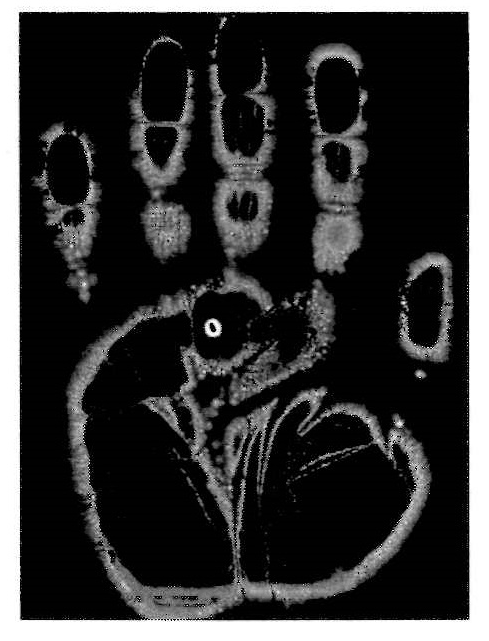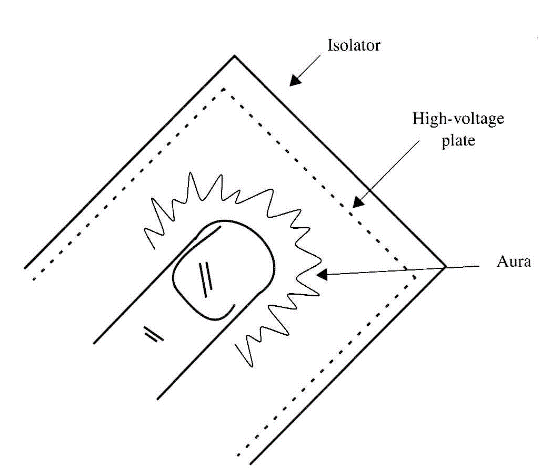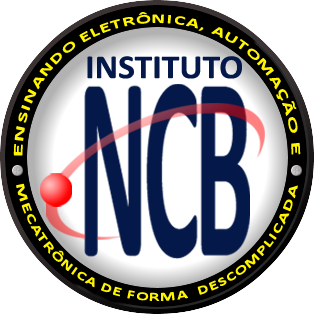Ce qui a t cru par tous, et toujours, et partout, a toutes les chances d'tre faux.
(What is believed by all, every time and everywhere, has all the chances of being false.)
Paul Valry (1871-1945)
History - The Medical Aspect
The roots of the Kirlian photography are in observations of patterns produced in resin dust by high-voltage discharges. Early observations were made by the German scientist Georg Christoph Lichtenberg in 1777. He was the first person to observe a corona discharge from a human hand.
After the invention of photography, the Czech physicist Bartholomew Navratil, and the Russian-Polish electrotherapist, engineer, and physician Yakov Narkiewicz-Yodko, registered the first images of electric discharges from living beings and objects and started with a systematic observation of the effect. It was Navratil who first used the term electrography to describe the effect.
However, the modern history of the Kirlian Photography began with Semyon Davidovitch Kirlian (1900-1980). He is said to be the first person to build a Kirlian camera (in 1939) when, by chance, he rediscovered the effect that now bears his name. Kirlian made the first experiments with his camera in Krasnodar, in the former Soviet Union.
Numerous experiments were conducted by a student, Viktor G. Adamenko, along with Kirlian and his wife. Adamenko presented the first doctoral thesis on the subject at the Minsk Polytechnic Institute (Belorussia) and described the physical mechanism of image formation by the corona discharge process. Viktor based his thesis on the cold emission of electrons from the specimen due to high-voltage fields.
But another researcher, Victor M. Inyushin (a professor of biophysics at Kazakh State University, Alma Ata, Kazakhstan), along with Wlodzimierz Sedlak, developed the hypothesis of bio plasma to explain the Kirlian Effect in bio electrography.
The Kirlian Effect became known in the West after the publication of two books, Psychic Discoveries Behind The Iron Curtain, by Ostrander and Schroeder (1970), and The Kirlian Aura, by Kroppner and Rubin (1974).
The first scientist to work on the Kirlian Effect in U.S.A. was Thelma Moss, a medical psychologist of the Neuropsychiatric Institute at the University of California at Los Angeles.
Another important name associated with contributions to the field is Gary K. Pook, professor of operations research and man-machine systems at the U.S. Navy Postgraduate School at Monterey, California. He was the first to introduce the bio electrographic motion picture method outside the Soviet Union. He used a light intensifier for improving brightness, thereby revealing a dynamic aspect of the discharge process that is invisible even with long exposure times using still photography.
After 1970, based on information found in specialized magazines, the author designed for Dr. Max Berezovsky, M.D. (Brazil), a Kirlian machine. Using the apparatus, Dr. Berezovsky started with experiments in bio electrography. Thousands of photos of the "aura" of objects and living things, such as plant leaves, have been made by that researcher.
An important document in this field was published in 1976 and 1978 by the U.S. Department of Defense. This document told about a six-year experiment conducted by a team headed by William Eidson, professor of physics at Drexel University in Philadelphia. The central point in this work was the discussion, among other things, of the typical instability of related equipment and the wide range of parameters that have to be controlled for best operation. One of the most important conclusions of this work was that electrography can produce images of the electrical parameters of a specimen in real time, making possible a mapping tool for the unexplained fields that surround living beings. These fields, to a certain degree, have the ability to modulate the characteristics of the surrounding space.
Another concept was developed by the German naturopathic doctor Peter Mandel in 1986, and it is now widely used as a method for interpreting the Kirlian image for medical diagnosis. In this application, the corona of the fingertips is related to their function as endpoints of the meridians in traditional Chinese medicine and German neo-acupuncture. Bio electrography or Kirlian photography is considered to be an inexpensive and quick method for the investigation of biological objects, based on the interpretation of an image obtained during their exposure to a high-voltage field. However, some problems have been found by the researchers, including
■ Lack of systematic clinical studies with adequate sample numbers for statistical validity
■ No theoretical basis for the mechanism of interaction between the corona dis-charge and the samples
■ Difficulties when reproducing the results due to the lack of technical standards
■ Lack of standard research methods
For this reason, in a workshop at the University of Aarhus (Denmark), the European Research and Standardization Group (ERSG) of the International Union -of Medical and Applied Bio-Electrography (IUMAB) has been formed to.
The Paranormal Side
The presence of a luminous emission involving living beings, and even objects, soon was linked to an "aura" or a "bioenergy field" associated with the spirit. Many paranormal researchers began their investigations with efforts to associate the "aura" to paranormal manifestations or to a person's personality, mood, or state of health.
The color of the aura is also studied by many researchers as a way to detect the state of a person's health or even his mood. Color therapy is the term for the parascience that associates the color of an aura to the health and mood of a person.
One of the first experimenters in the field was the Brazilian Padre (Father) Landell de Moura, who, as a subordinate of the Roman Catholic Church, couldn't discuss that kind of invention. They say that the plans for his camera and the actual device were confiscated and have disappeared. Readers interested in the work of Landell de Moura can find much information about it on the Internet. One of the sites that of my friend Luiz Netto* who wrote many articles about Landell de Moura in the magazines for which this book's author is the technical director. (See the "Chronology of the Transcommunication" in this book for more information.)
Even now, we can say that the Kirlian photography can be used in paranormal research. The images of the "aura" are powerful tools for the indication of para-normal phenomena, and many experiments can be performed with a Kirlian machine.
Kirlian Photography Defined
Kirlian photography (also known as bio electrography or electrophotography) is a means of taking pictures of objects and living beings to reveal invisible patterns. These patterns are associated with the health or paranormal states of the objects to be photographed.
Paranormal researchers believe that the patterns registered in the plates by this process are associated to "forces and fields" that are present in all living beings, and also objects, and that these patterns can serve as instruments for diagnosis and detection of paranormal properties. In medicine, researchers believe that the patterns can reveal diseases or confirm normal, healthy states in living beings.
How Kirlian Photos Are Made
Kirlian photography is based on the well known physical phenomenon called corona effect. When an electrode is charged with a very high voltage (typically over 5,000 V), the charges tend to escape from the electrode by ionizing the adjacent air. The ionized air becomes conductive, producing a cold light radiation in the visible spectrum as well as in the ultraviolet and infrared spectra.
If a body is charged from a high-voltage source, the charges escaping into the air cause light to emanate from it, which gives it the qualities of an aura. Figure 102 shows the aura or corona effect produced when the hand of a person is placed on the electrode of a Kirlian machine. Kirlian observed the aura while working with high-voltage circuits of TV receivers and created an apparatus to photograph it.
The basic apparatus is formed by a high-voltage source and a plate with a metallic electrode where the high voltage is applied (4,000 to 50,000 V in the circuits commonly used in Kirlian cameras). A piece of glass is used to isolate the high voltage from the object or living being to be photographed.
The high voltage doesn't create a flux of charges that can cause electrical shock if someone touches the glass plate, but a high enough voltage is induced that the object, such as a finger, can radiate its own flux of charges into the air, creating an aura such as the one shown in Fig. 1.
If any conductive object is placed on the glass, an aura is produced by the induction of the high-voltage charge. The aura will cause the object to draw patterns corresponding to the parts in which the charge flux is higher or lower.
The flux of charges emitted from the object into the air depends on several factors, such as the existence of areas that are more highly conductive than others. All of this means that the pattern of the aura changes according to the nature of the object placed on the electrode.
If a sensitive paper or film is placed between the object and the glass electrode, such as photographic film or even thermographic fax paper, the flux of charges can register an image on it. When revealed, the photo or figure on the paper will correspond to the electric flux of charges from the object during a particular time; i.e., the aura, as paranormal researchers call it.


This means that a basic Kirlian camera, represented in Fig. 3, is formed by (a) a high-voltage source, (b) a metal electrode, (c) a piece of glass to isolate the sample from the high-voltage source, and (d) a piece of film or sensitive paper to register the images. The object to be photographed is placed between the electrode and the film.
If the experiments are made in a dark place, the researcher can see the aura around the object placed on the electrode. This aura appears as a color luminescence involving the object and extensions in directions that depend on the nature of the sample. Blue, red, and yellow are the predominant colors in the aura of common living things, such as leaves, fingertips, hands, etc.
Many advanced Kirlian machines include video cameras to transfer the image to a computer or a TV. The images captured by the cameras can be manipulated by any image editing software.
For practical reasons, some technical details must be observed when building a Kirlian machine. For instance, best results are found when the high-voltage source operates in the medium frequency range (between 2 and 10 kHz). There are many simple circuits that can produce these voltages from the ac power line, and we will discuss some of them in the following pages.
Caution! The most important fact to remember when working with these circuits is that the high voltages are dangerous, and much care must be taken when working with any high-voltage devices. To avoid shock hazards, the high-voltage sources are current limited. Even so, only readers who have proper knowledge and experience with high-voltage electronics should handle this equipment. The high voltages used in Kirlian cameras are dangerous and can be deadly under certain conditions. Although great care has been taken in the description of these devices, the author wishes to alert readers to the dangers of using them without proper installation and due caution.
What the Aura Represents in Paranormal Research
Kirlian photography is a new subject of investigation, so there are many theories and much speculation about the meaning of the image shapes and colors captured in the photos. Medical doctors are trying to define standards to associate the color and shape of the aura to the health of a person. Others are using the auras to diagnose the mental state of people and even to determine personality traits from the colors and shapes detected in the aura. Of course, the images are real, but there is also misinterpretation resulting from the natural human tendency to extrapolate when interpreting results.
This first explanation for the patterns in the photos is related to the existence of life energies or bioenergies emanating from living beings. But, as in the case of EVP and EIP experiments, we call the reader's attention to possible misunderstandings in the use of these terms when trying to explain natural phenomena or anything that is unknown.
For readers who want to perform their own experiments with Kirlian photography, some facts about researchers' terminology on this subjects are important:
■ Researchers found that the various colors picked up by the Kirlian photos have important meanings. They suggest that normal, healthy living beings "emanate" clear, white coronal colors. Additionally, a deep blue band with a symmetrical pattern appears just beyond the outer boundary of the healthy living being. A fingertip presents an image with these characteristics.
■ On other hand, if we photograph the fingertip of a person who has reported feeling tense, aroused, or anxious, the registered pattern appears as a luminous red cloud or blotch.
■ Paranormal researchers say that the qualities of the aura can be linked to the health of the living being who is being examined and can be used to diagnose diseases. These qualities are also said to be useful for determining mental states or paranormal capabilities of a person.
■ Another important aspect of Kirlian photography is artistic. The charges leaving the leaves and other objects draw beautiful figures. Exhibitions of Kirlian photos taken of various objects are common.
In the next pages, we will describe some projects based on high-voltage de-vices that can be used as Kirlian cameras and in other paranormal experiments. These circuits are based on the first Kirlian machines built by the author many years ago and updated to use modern components. Some of these projects are re-printed from the Brazilian magazines (Revista Saber Eletrônica and Eletrônica Total) with which the author is employed.
Experimenting with Kirlian Photography
If the reader wants to start with experiments involving Kirlian photography, some basic equipment is necessary, and details about the basic procedures are important, as they are in other paranormal fields. As in the case of EIP and EVP experiments, some caution is required to keep the researcher from tricking himself. Because of our tendency to extrapolate results, false conclusions can also occur when experimenting with the Kirlian effect.
Before assembling the circuits and starting with the experiments, familiarize yourself with scientific explanations for some key concepts such as corona effect, ionization, and high-voltage fields. Take care when choosing your sources of in-formation about the subjects, verifying their origin and making sure that the author knows enough about the subject and is not merely trying to sell you his ideas.
Basic Materials
1. Kirlian machine. This is the basic equipment for all related experiments. The Kirlian machine is a high-voltage generator with special characteristics, producing a voltage between 8,000 and 50,000 V, with a very low current output and operating frequencies between 100 and 10,000 Hz. The main point to be considered about this machine is whether the design is safe. Working with very high voltage is dangerous, and a shock can be fatal under certain conditions. The reader who wants to experiment with a Kirlian machine must be-come familiar with its operation before starting the experiments. Some Kirlian machine circuits will be described in the following pages.
2. Photographic paper or other media for registering the images. There are many ways to record the images produced by objects in Kirlian machines Images of fingertips, plant leaves, coins, and insects can be registered on photosensitive materials, fax paper, and any media sensitive to light or electricity.
The reader is free to experiment with other media. Polaroid cameras and film have been used successfully to make Kirlian photos.
3. Magnifying glass. Details of the "aura" can be observed more easily with the aid of a magnifying glass.
4. Scanner and computer. The advanced experimenter can use the computer to edit the images. You can scan the images and process them using standard image editing software.
5. Materials for processing film and prints. This includes chemistry for developing photographic materials, related equipment, a darkroom, etc.
A Note about the Power of the Practical Projects.
Again, we emphasize that working with high voltages is dangerous. Although this book provides all the in-formation the reader needs to conduct safe experiments with Kirlian photography, as the output power of the Kirlian machines increases, the danger of mortal shock rises in the same proportion. Therefore, to ensure the readers' safety, the projects described herein, although possibly dangerous in some conditions, are limited in power. The reader can alter some of them to increase the output power and thereby obtain auras of larger objects such as a complete hand. However, we don't recommend that any reader do so immediately. First, build a low-power unit to become familiar with the procedures for using it. Only after you are certain that you have the required expertise will it be safe to work with more powerful units.




